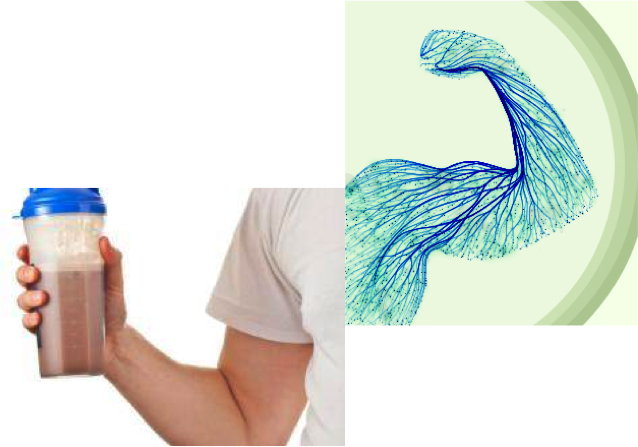The unprecedented crisis of COVID-19 ushered in a new era of health-related vigilance.
We’re taking our temperatures and keeping an eye on community statistics. We’re washing our hands more frequently and keeping a safe distance from others. Taking proactive steps to steer clear of contagions has never been more crucial. Whether it’s wearing a mask or keeping the hand sanitizer in close reach, we’ve all taken external care to protect our wellbeing.
While mindful precautionary efforts have been of utmost importance, science points toward another potential defense from illness – Covid or otherwise – that we can tackle simply enough while at our kitchen counters. We can raise up a stronger internal shield by unleashing the power of protein. Whey protein provides a simple means and delicious possibilities to build our protection from within.
It’s long been known that eating a protein-rich diet plays a role in boosting the body’s immune system. But when it to comes to keeping viruses, bacteria and other pathogens at bay, studies have shown that not all protein sources are created equal.
Whey proteins stand out from the pack. The protein profile of whey has been shown to enhance our bodily defenses in ways that plant-based protein sources lack. Originating from milk, whey protein in its original state is the liquid byproduct of the cheesemaking process. It is considered a complete protein in that it contains all nine essential amino acids. Whey protein further provides higher concentrations of those amino acids than found in plant proteins.
Even our best efforts to steer clear from germs aren’t foolproof. We need to put our bodies in their best positions for battle.
Biological components specific to whey protein appear to boost glutathione (GSH) production and preserve muscle glutamine. GSH is the workhorse of the body’s antioxidant defense while muscle glutamine serves as the immune system’s power source.
Although there’s no way to guarantee the avoidance of illness, we can put our bodies in a more advantageous place with some care and effort. Whey protein could be a beneficial puzzle piece when combined with other healthy habits including regular exercise, a balanced diet, adequate sleep and stress reduction.
Whey protein: a powerful team against illness
Whey protein is often thought of in the contexts of sports performance and building muscle mass. Indeed, consumption of whey protein promotes muscle recovery, and it’s also an effective tool for many in their quests to shed some weight. Yet its applications extend to general wellbeing — and all of us stand to benefit from the heavy lifting of whey protein in the promotion a strong immune system. Its components offer a more rigid defense against the micro-organisms primed to put us under the weather.
Whey protein products carry significant quantities of immunoglobulins – or antibodies – that bind to viruses, bacteria and other toxins and prevent infection. It’s rich in lactoferrin, a versatile protein which has been shown to inhibit bacteria, fungi and several viruses.
“(Lactoferrin) is a chameleon in that it can enhance immunity to prevent cancer, and yet suppress immunity to block inflammatory disease,” according to a 2007 study published by the American College of Nutrition. It carries high concentrations of leucine, isoleucine and valine. The branched-chain amino acids lend to tissue growth and repair.
Cysteine and methionine as found in whey are converted to GSH at the cellular level. The GSH antioxidant system is the foremost protective mechanism of the cell and crucial to the immune response. GSH has been shown to have cancer fighting and anti-inflammatory properties.
Today’s consumers have more options than ever, and among proteins, plant-based sources have garnered significant interest. Research, however, has shown that those protein sources lack the same immune-boosting punch present in whey.
A 2018 study comparing essential amino acid concentrations among plant-based and animal-based protein sources highlighted noteworthy differences. Overall, plant-based sources had lower concentrations than animal-based proteins, which include whey. If compared at an equal weight, whey proteins, had a higher concentration of essential amino acids than even other animal-based proteins to include milk, egg, casein and muscle proteins.
Those looking for the greatest gains in terms of immunity might look even closer.
The average leucine content of plant-based proteins was lower than that animal-based proteins. Methionine and lysine, another immunity-supporting amino acids, are found in low concentrations in plant proteins.
Maintaining good health is a multi-faceted endeavor. Whey proteins could provide another layer of protection, and combined with environmental protection, it’s a powerful plan.



























